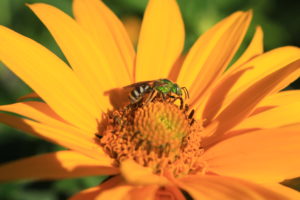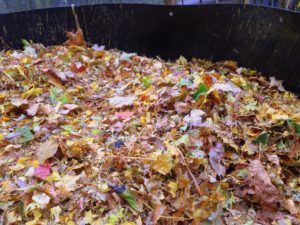Summer of 2022 is a serious drought in Massachusetts. Lots of people and organizations are providing lots of good information about how to help plants survive drought conditions, but few are talking about soil health to combat drought, so I’d like to provide a bit of information to folks about it.
Continue readingTag Archives: leaves
Junk mail and bills for your compost?

Is it safe to compost junk mail and bills? As you may know, newspaper is generally safe and something I have few qualms about.
Bills and junk mail are a different story, because the printed text and images are made with toner rather than ink. Toner is little more than finely ground plastic.
Determining the safety of printed products can get complicated, but here is a brief rundown of why I suggest you stay away from composting your bills, junk mail and home printed materials.
Continue reading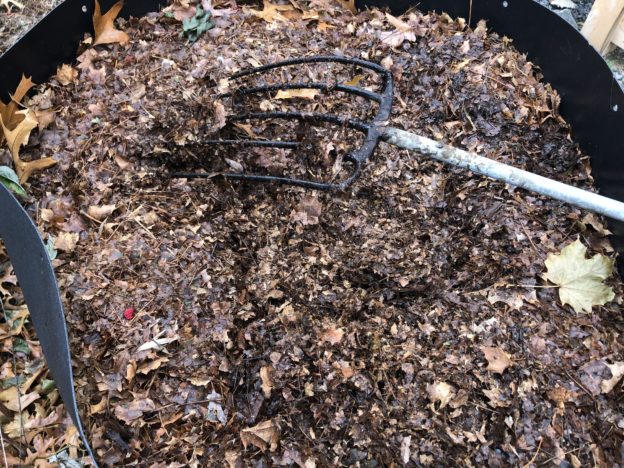
What about leaves?
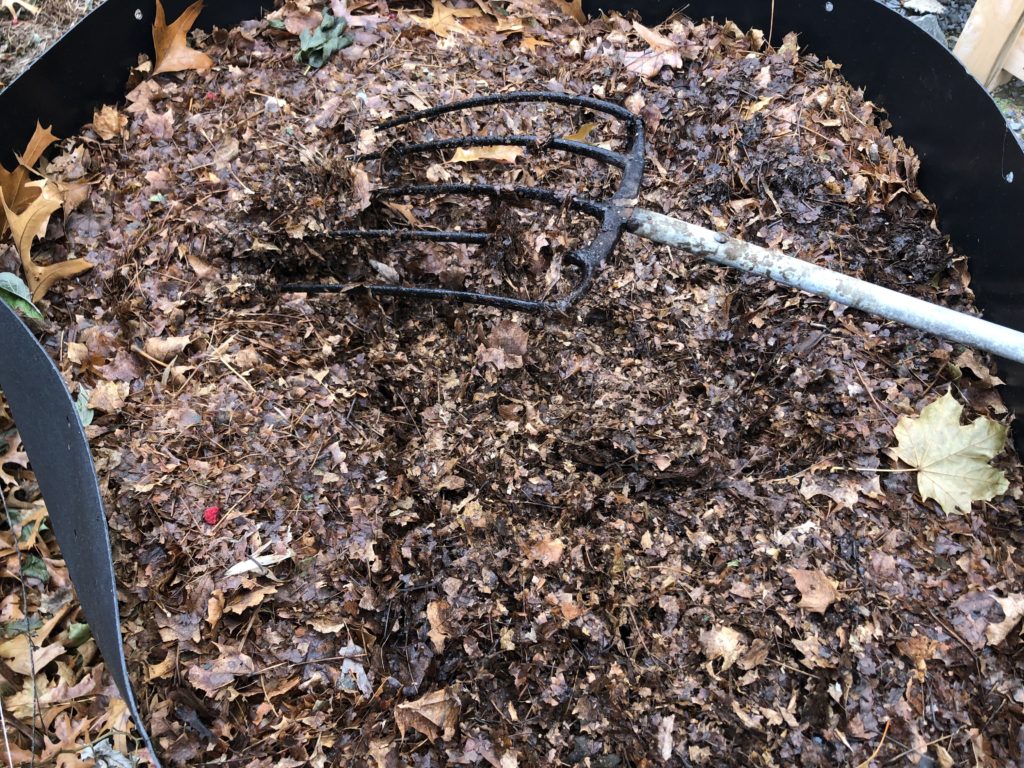
Leaves have become a hot topic recently (finally), so I’d like to briefly address it.
Continue readingWhy a pile of leaves gets hot
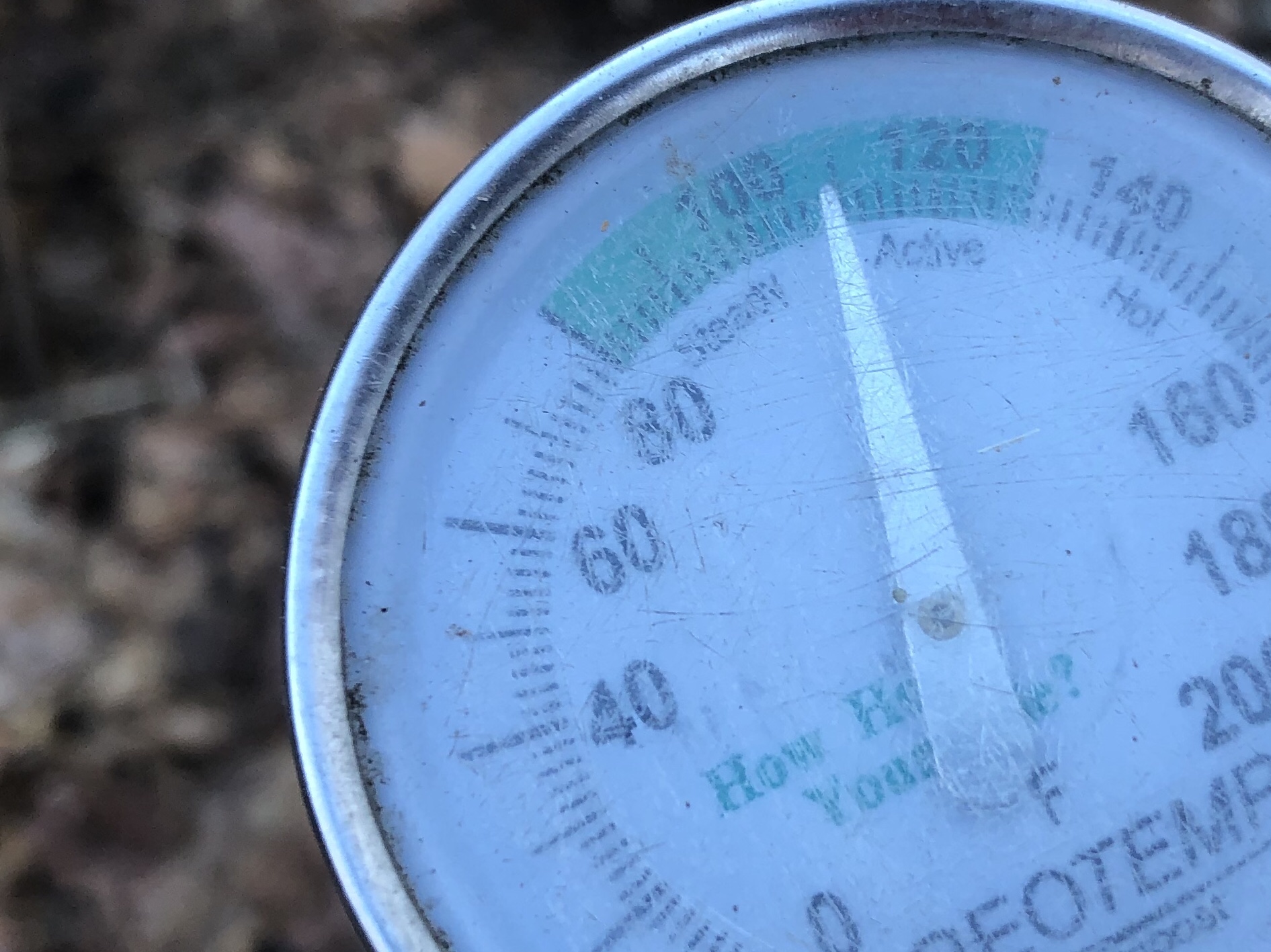
110° F pile of just leaves.
The power of volume. It is 11°F right now but this pile of leaves, approximately 1 cubic yard, is 110°. It is just leaves – no grass or nitrogen source. Continue reading
Why shred leaves?
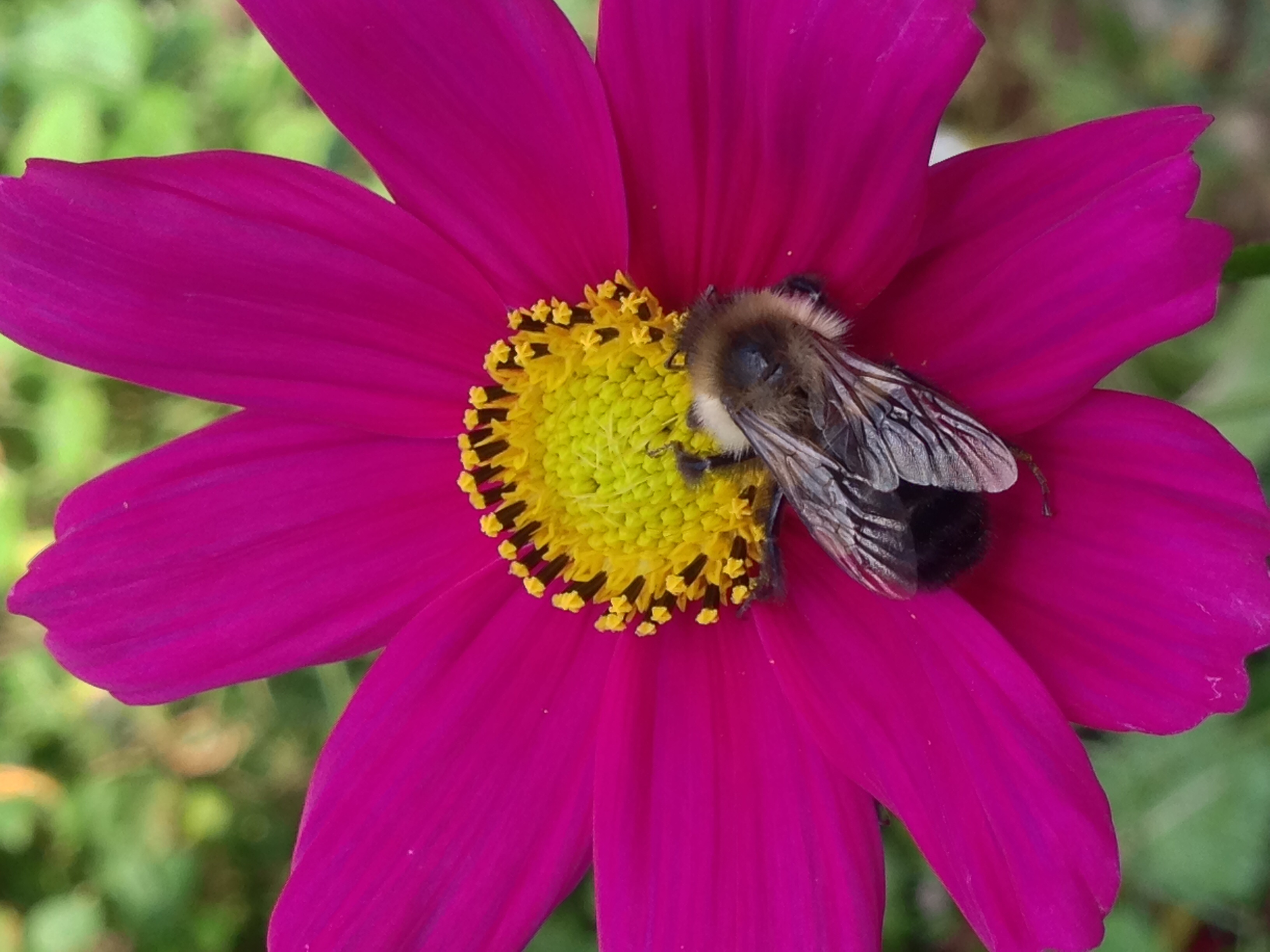 Is it necessary to shred leaves for the compost? No, absolutely not, but doing so provides a number of benefits. Continue reading
Is it necessary to shred leaves for the compost? No, absolutely not, but doing so provides a number of benefits. Continue reading

Myth and mystery of cover crops
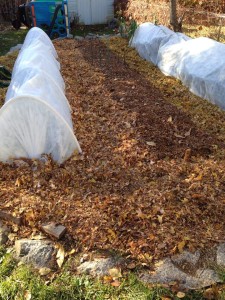
Shredded leaves keep soil in place, add nutrients to the soil and make a great, soft path material to keep weeds down. You can even alternate leaf-variety for patterns.
Cover crops are popular. People claim cover crops will add nitrogen to your soil (sometimes, sort of, but not much), they’ll protect the soil (kind of, sometimes) and prevent weeds (or they’ll act as weeds).
Let’s take a deeper look at this now that the end of the season is upon us.
Spring Cleanup
Are street leaves safe to use in compost or as mulch?
The easiest leaves to collect are usually on hard surfaces. That makes street leaves very easy to collect, but that doesn’t mean you should use them. Continue reading
Mow, don’t rake
What would you say if I told you that the world’s leading sellers of lawn fertilizers, pesticides and herbicides suggest mowing leaves into your lawn as a way to improve nutrition, add organic material and promote disease resistance?
You can also use a power mower to collect leaves quickly and efficiently, which also reduces them to a size good for the compost or simply getting more per lawn bag.
Because, science: https://ag.umass.edu/…/yard-waste-management-in-massachuset…
Leaf mulching: When there is only a moderate amount of leaves on the ground a mower can be used to mulch them into the turf. Research at Purdue University demonstrated that mulching maple leaves into the turf does not have any detrimental effect on the soil or turf and usually results in improvement of soil structure. The research also showed that mulching maple leaves does not increase thatch and disease on turf and has no effect on soil pH and nutrient availability. Research at Michigan State University suggests that leaf mulching can also reduce dandelion population on turf. The research showed that mulched red and sugar maple leaves initially reduced dandelion populations on very low maintenance and moderately maintained (fertilized and properly mown but not irrigated) lawns under some conditions. The mulched leaves provided some pre-emergence dandelion control in the first year but did not provide any post-emergence control or sustained effects once dandelions had become established.
Bayer: http://bit.ly/2e9OFIN
You can skip raking completely by mowing over leaves and chopping them into small pieces.
You also can allow leaf pieces to decompose in place on the lawn. To do this, chop leaves into dime-size pieces. Depending on how large leaves are and how deep the layer is, you may need to mow over them several times to chop them small enough. After mowing, you should see roughly 50 percent of the grass through the leaf pieces. The more grass you see, the more quickly those leaf pieces will decompose.
As the leaf bits settle onto soil between grass blades, microbes start the process of decomposition. Providing a nitrogen source, like that found in a winterizer or fall-timed lawn fertilizer, will help soil microbes break down leaves faster. Allowing leaves to decompose in place ultimately enhances the soil beneath your lawn, adding organic matter, which leads to a healthier, thicker lawn.
Scotts: http://bit.ly/2e9JLLR
Take the grass catcher off your mower and mow over the leaves on your lawn. You want to reduce your leaf clutter to dime-size pieces. You’ll know you’re done when about half an inch of grass can be seen through the mulched leaf layer. Once the leaf bits settle in, microbes and worms get to work recycling them. Any kind of rotary-action mower will do the job, and any kind of leaves can be chopped up. With several passes of your mower, you can mulch up to 18 inches of leaf clutter.
Maple leaves have fallen and we’re all going to live
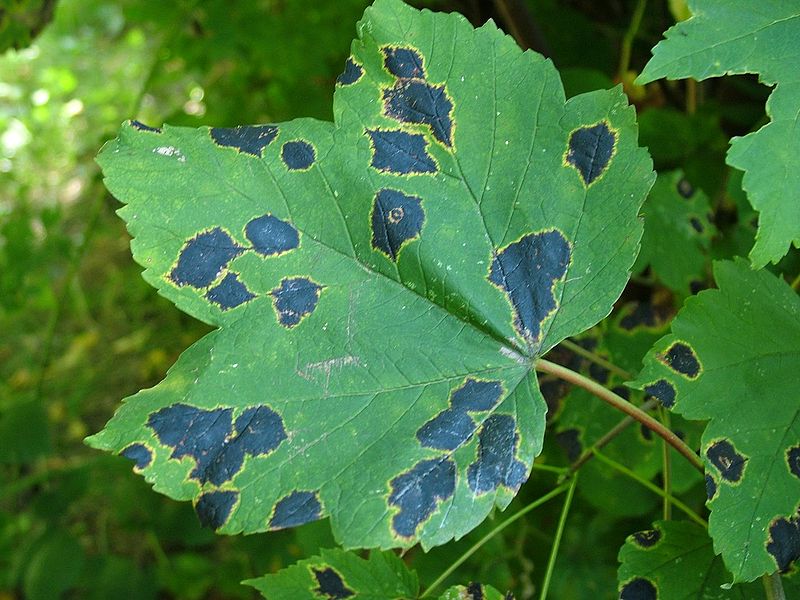
Maple Tar Spot. This file is licensed under the Creative Commons Attribution-Share Alike 3.0 Unported license.
This is a follow up to the recent post “maple leaves falling and we’re all going to die.”
Turns out, stories of our imminent death may have been premature. I was able to contact Professor George Hudler of Cornell for more information, and he’s got more good news. Continue reading

